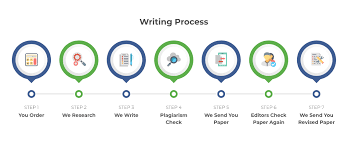Peer #1
Social support relieves mental disorder symptoms when offered through personal associations and nursing practices. Incorporating nurses’ obligations entails utilizing their knowledge of identifying cognitive severities and suitable care. Nurses apply skills and evidence-based concepts that foster the effectiveness of their support to individuals with the disorder. Social support offered under appropriate professionalism measures constitutes plausible and researched interventions that enable treatment. Notably, nursing education contributes to achieving care goals for the patients as practitioners are recovery-oriented by integrating their knowledge in executing assistive tasks (Horgan et al., 2020). Social support becomes enforced through the participation of experienced and adequately trained nurses who understand the support needed. Nurses enhance the intervention by presenting therapeutic facts that facilitate the healing of the chronically ill individual. For instance, nurses can use evidence care to help patients gain attention to community matters. Patients then gain confidence in associating with other individuals through the nursing recommendations. The nursing example indicates nurses’ essentiality in the social support process.
The effectiveness of the undertaken social support initiatives is fostered by current networks and the association that an individual forms. The contrast in the reliability of support through the social channels from nurse involvement is the availability of reliable information from credible medical reports. Social networks avail broad mental therapy actions that may not be based on factual practice concepts, lowering the notion about the reliability of the provided assistance. The relevance of media networks entails presenting profiles where people can like images and actively engage with ill persons to provide adequate support (Ridout & Campbell, 2018). Social networks enhance the interconnection of individuals who share an encouraging narrative about treating mental conditions. Response rates among individuals operating on social networks are relatively high, implying that mentally ill individuals are offered adequate and timely support.
Persons with cognitive disorders can also find comfort from counselors and peer mentors who may not have nursing skills to address their issues. Social networks enable collective assistance for chronic cognitive conditions, whereby online advisors can complement nurses’ support. Comprehensive therapy is then offered to the mentally disturbed to ascertain intervention’s effectiveness. Social networks integrate with personal relationships, whereby the mentally disabled can interact with digital application users. Online interconnections keep individuals active and reduce boredom or disassociation feelings from society. Associations on social media show that people can select the form of relationship that suits their feelings, illustrating effectiveness.
Peer #2
The mental illness of a family member causes psychological problems to the rest of the family, such as distress, decreased quality of life, and time and dedication to take care of the ailing family member. The effect this may cause is more significant in the case of biological mothers due to their close relationship with their children. The stigma and anxiety resulting from a son’s or daughter’s mental illness dispose the mother at risk of developing social, behavioral, and emotional problems. Therefore, the affected family must develop a coping strategy to reduce the resultant mental trauma attributed to the condition. Social support through professional or nurse service and social relationships would be ideal in relieving such mothers of the burden of loneliness and stress.
Yildirim and Tanriverdi (2021) define social support as having close affiliates such as friends and family members to resort to at times of acute crises or need to help an individual to cope with an adverse condition. Other than family members and friends, professionals trained in a related field such as nursing, counseling, and psychologists provide social support. However, the quality and effectiveness of emotional, informational, and esteem resulting from the different sources of social support differ.
Professional social support is a structured technique to comfort stressed individuals to improve their mental status. Distinct features not in social support derived from personal relationships characterize it. These include creativity, passion, competence, sense of humor, and empathy. Wieck et al. (2021) distinguish between sympathy and empathy, drawing a clear distinction that characterizes professional social support. While sympathy says, ‘I hurt with you,’ empathy goes beyond detection and says, ‘I see that you are hurt, and I am passionate about helping you cope and move forward. Therefore, professional social support is intentional and not coincidental, as in social support from personal relationships like friends and family members. Second, professional social support is driven by a passion for improving the mental state of the distressed person. As a result, the professionals are creative and humorous in their endeavors.
Professional social support provision is planned, unlike the social support from personal relationships. Hence, the end goals of the latter type of social support may not be as definite as in the former. For example, friends and relatives may give up when the situation overwhelms, while a professional will multiply efforts to reverse the situation as things worsen.
In conclusion, social support from personal relationships may be more significant when friends and family members comfort the affected individuals with a sense of passion and consistency (Hoffmsnn et al., 2021). In addition, the more significant influence of personal relationships and social support may be due to the emotional connection and understanding between the mother of the children with chronic mental illness and the friend or relative.










Recent Comments